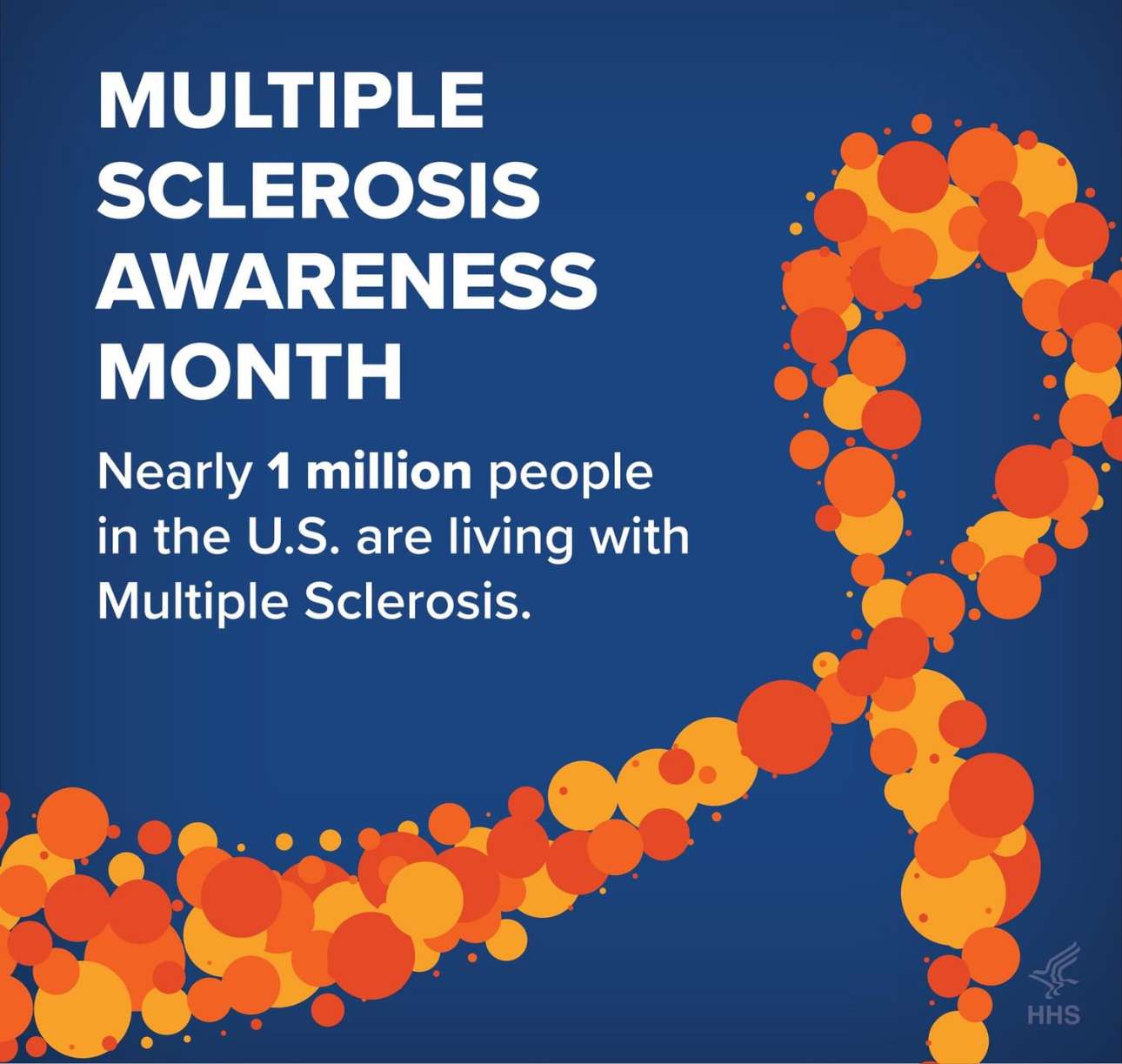March is Multiple Sclerosis Awareness Month.
Multiple sclerosis (MS) is a chronic neurological condition affecting millions worldwide, characterized by the immune system attacking the protective sheath covering nerve fibers. This results in communication problems between the brain and the rest of the body, leading to various symptom that can often be debilitating.
MSAA’s national campaign for MS Awareness Month focuses on “Improving Lives Through Supportive Connections” with specific programs addressing the power of social interactions, connectedness, and mental health support to empower health, enhance quality of life, and improve MS care.
A number of symptoms have been reported that seem to be universal flags for MS:
– Fatigue: A common symptom experienced by individuals with MS, impacting daily activities.
– Numbness or weakness in limbs: Sensory disturbances may occur, affecting mobility.
– Vision problems: Blurred vision, eye pain, and even partial or complete vision loss can be early signs of MS.
– Cognitive changes: Memory issues, difficulty concentrating, and impaired judgment can arise.
– Balance and coordination problems: Dizziness, tremors, and lack of coordination are common.
Thankfully there are many ways to treat both the symptoms and the disease:
– Disease-modifying therapies: Medications such as interferons, glatiramer acetate, and newer options like ocrelizumab aim to reduce the frequency and severity of MS attacks.
– Symptom management: Treatments for specific symptoms like muscle stiffness (spasticity), fatigue, and bladder dysfunction can improve quality of life.
– Rehabilitation: Physical therapy, occupational therapy, and speech therapy can help manage symptoms and enhance mobility and function.
– Lifestyle modifications: Regular exercise, a balanced diet, and stress management techniques can support overall well-being.
Like most things, early diagnosis and treatment are crucial in managing MS effectively and delaying disease progression. Support groups and counseling can help individuals cope with the emotional and psychological impact of MS.
Research into potential new treatments and a better understanding of the disease continue to offer hope for improved outcomes for those living with MS. By staying informed, seeking appropriate medical care, and adopting a holistic approach to management, individuals with MS can lead fulfilling lives despite the challenges posed by the disease.
Find support and more here at National MS Society



















